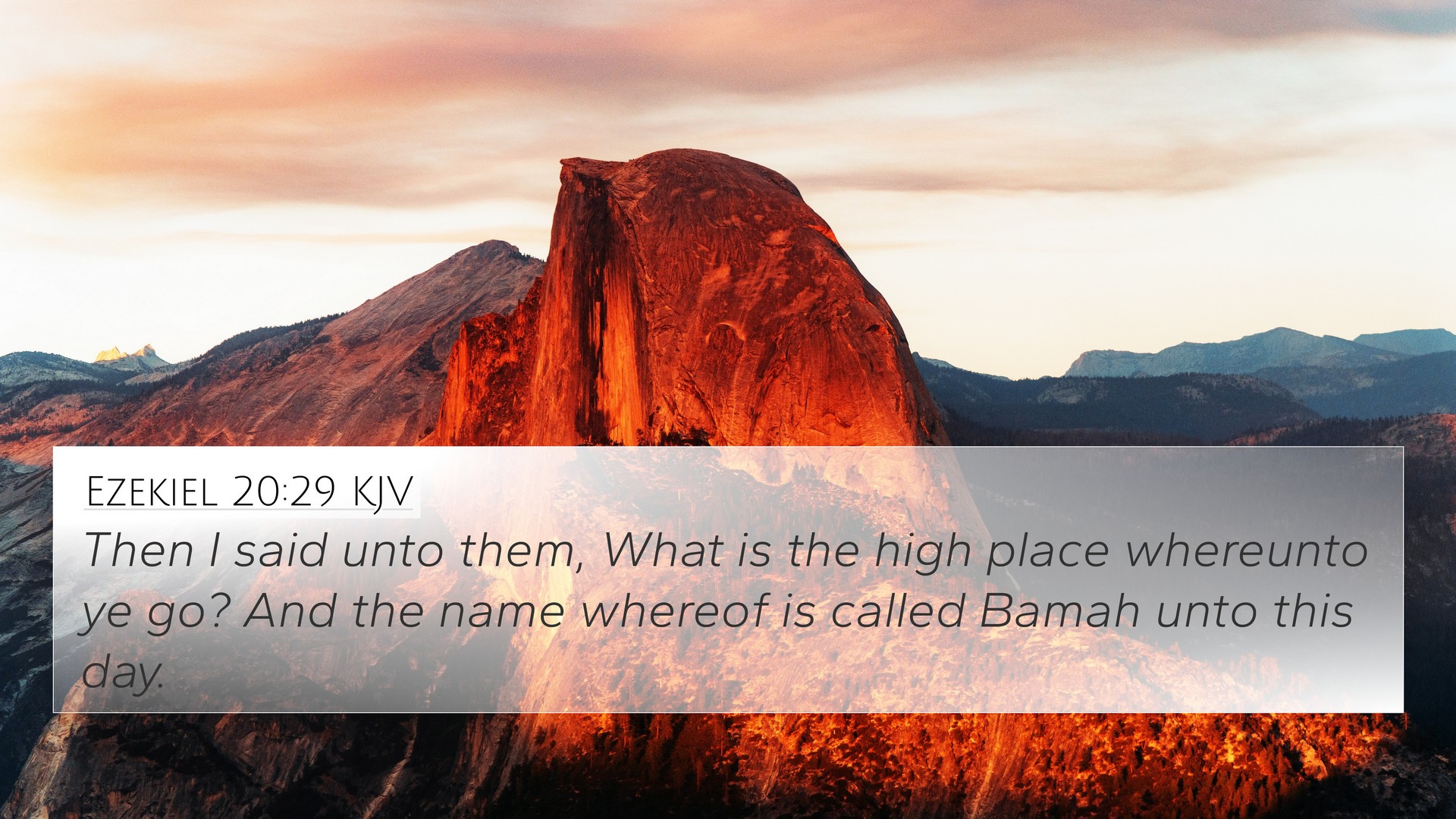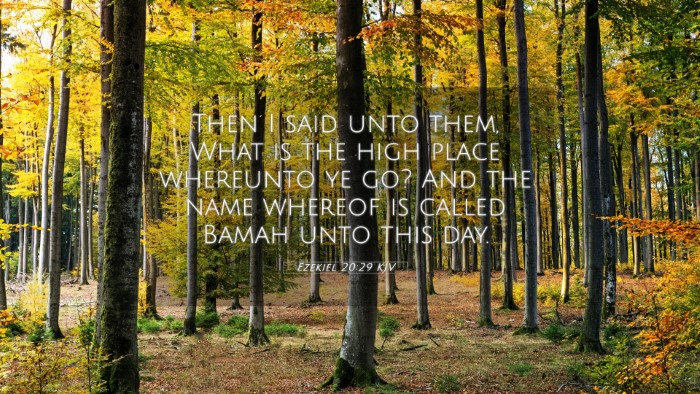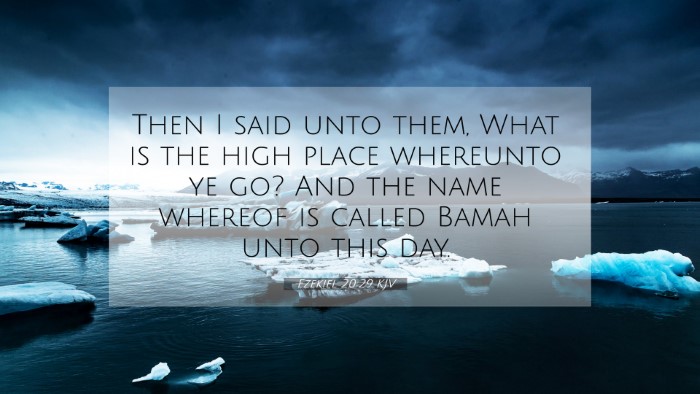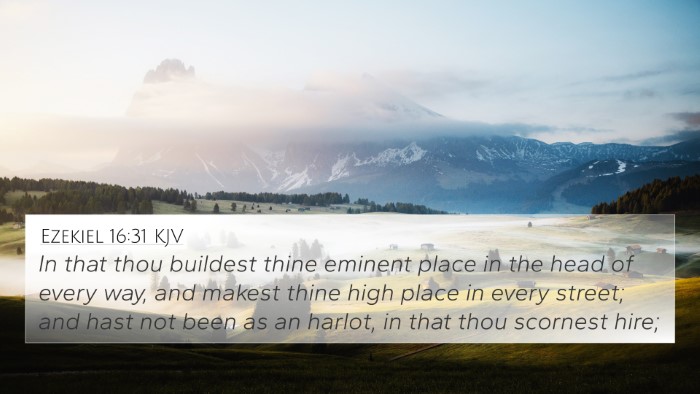Ezekiel 20:29 Explained
Bible Verse: Ezekiel 20:29 - "Then I said to them, 'What is this high place to which you go?' So its name is called Bamah to this day."
Meaning of Ezekiel 20:29
This verse addresses the issue of idolatry among the Israelites, questioning their practices concerning high places of worship, and sheds light on God's concern over them. Understanding this verse necessitates a look at the broader context of Ezekiel's confrontations with the people of Israel regarding their unfaithfulness to God.
Commentary Overview
-
Matthew Henry: Henry emphasizes that God, through Ezekiel, seeks to highlight the foolishness of the Israelites in their worship practices. The mention of "Bamah," meaning "high places," reflects the locations where the Israelites offered sacrifices to idols, which God condemns.
-
Albert Barnes: Barnes points out that the location of these high places (Bamah) symbolizes spiritual treachery. The asking of "What is this high place?" serves as a rhetorical device to provoke introspection among the people regarding the seriousness of their idolatry.
-
Adam Clarke: Clarke suggests that the high places represent not just physical locations but also moral and spiritual allegiances. The perpetual mention of these places in their collective memory — "to this day" — indicates a reminder of their consistent rebellion against God.
Cross-Referencing Biblical Texts
Ezekiel 20:29 connects to various other scriptures that discuss idolatry and misguided worship practices, highlighting the continuous theme of God calling His people back to faithfulness.
- 1 Kings 3:2-3: Describes the Israelites still sacrificing at high places during Solomon's reign.
- 2 Kings 17:10-11: Details the idolatrous practices of Israel, including high places and sacred groves.
- Jeremiah 3:6: God reminds Israel of their unfaithfulness and the high places they frequented.
- Hosea 4:13: Mentions the offerings made on mountaintops and the consequences of idolatry.
- Ezekiel 18:30: Calls the people to repentance from their abominations, including the high places.
- Ezekiel 43:7: Talks about the Lord returning to His temple, emphasizing the need for purity and exclusivity in worship.
- Deuteronomy 12:2-4: Commands Israel to destroy high places and worship only at the chosen place.
Thematic Connections
This verse illustrates a prominent theme in the Scriptures: God’s persistent call to purity of worship. It leads to a comparative analysis of the Israelites' behavior and God's responses throughout the prophetic literature.
Using Cross-References for Deeper Understanding
When studying this passage, one can employ various Bible study tools that assist in identifying connections between verses.
- Bible Concordance: Use it to locate other instances of high places discussed in the Bible.
- Bible Cross-Reference Guide: Ideal for identifying verses that relate to Ezekiel 20:29.
- Cross-Reference Bible Study: Helps trace themes related to idolatry from the Old Testament to the New Testament.
Conclusion
In summary, Ezekiel 20:29 serves as a poignant reminder of the spiritual challenges faced by Israel and their ongoing struggle against idolatrous practices. The verse calls us to reflect on our own worship and ensure that it aligns with God’s commandments, reinforcing the necessity of continuous study and understanding of inter-biblical dialogues through cross-referencing.
Final Thoughts
For those seeking to identify connections within the Bible, utilizing a comprehensive Bible cross-reference tool can yield profound insights, revealing the interconnectedness of Scriptures and enriching your spiritual journey.




